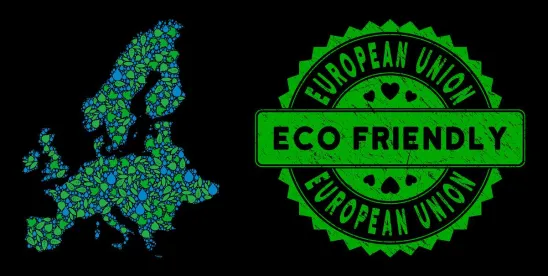The European Commission (EC) began a public consultation on July 8, 2025, on a draft act that will establish rules for calculating, verifying, and reporting on recycled plastic content in single-use plastic beverage bottles. According to the EC, this will provide legal clarity to European Union (EU) member states “so they can properly implement EU rules on single-use plastics,” helping to increase the use of recycled material in the EU economy and reduce plastic waste incineration and landfill. Comments are due August 19, 2025.
The draft act would repeal Commission Implementing Decision (EU) 2023/2683, which laid down the methodology for the calculation and verification of the recycled plastic content targets and the format for reporting data on recycled plastic content in beverage bottles. The draft act notes that under Regulation (EU) 2022/1616, the only suitable recycling technologies are post-consumer mechanical recycling of polyethylene terephthalate (PET) and recycling from product loops in closed and controlled chains. To allow additional recycling technologies to contribute to the attainment of the recycled content targets in Directive (EU) 2019/904, the draft act would establish additional rules for the calculation, verification, and reporting of recycled plastic content derived from such additional recycling technologies. The draft act states that “[i]n particular, it is necessary to introduce so-called mass balance accounting, which requires substantial additions to the existing methodology.”
The draft act states that “[p]lastic waste should be processed by the recycling technology that to the greatest extent reduces the negative impact on the environment, taking into account the required quality of the recyclate and the economic viability of the different technologies.” According to the draft act, this means that “mechanical recycling technologies are in general preferable to chemical recycling technologies from an environmental point of view, and waste that can be recycled mechanically should in general not enter into chemical recycling if mechanical recycling can produce recyclates with similar quality or performance characteristics.” To account for technological developments in the recycling sector, including but not limited to the roll out of chemical recycling technologies to full commercial scale, the draft act calls on the EC to review the methodology, including the rules for allocation of attributed amounts, established in this Decision, also to align with the provisions in Article 7(8) of Regulation (EU) 2025/40.




 />i
/>i
